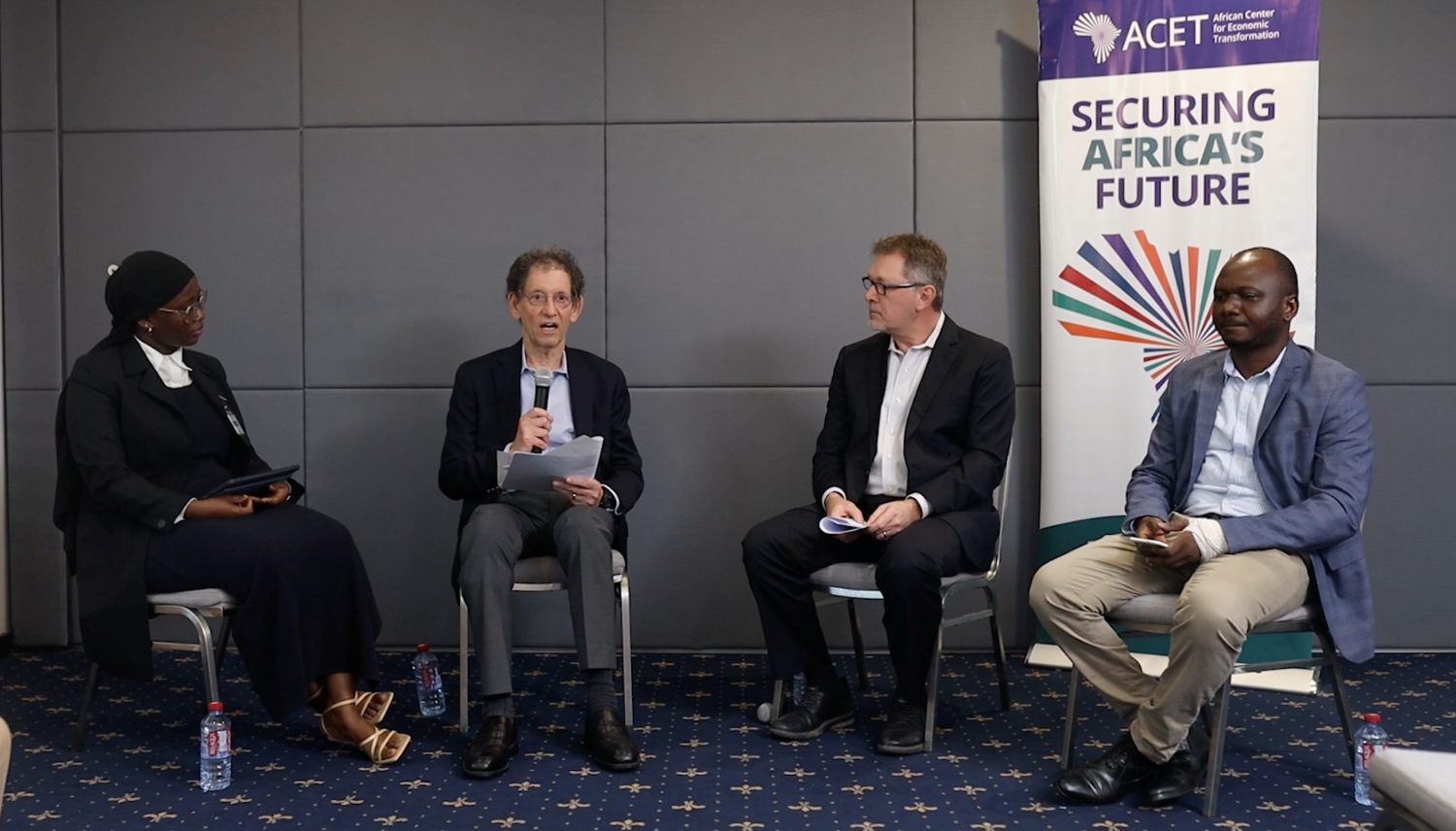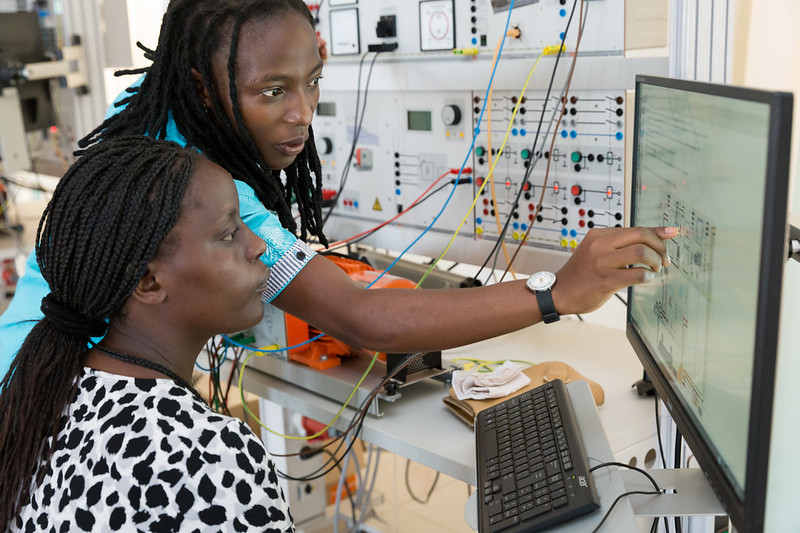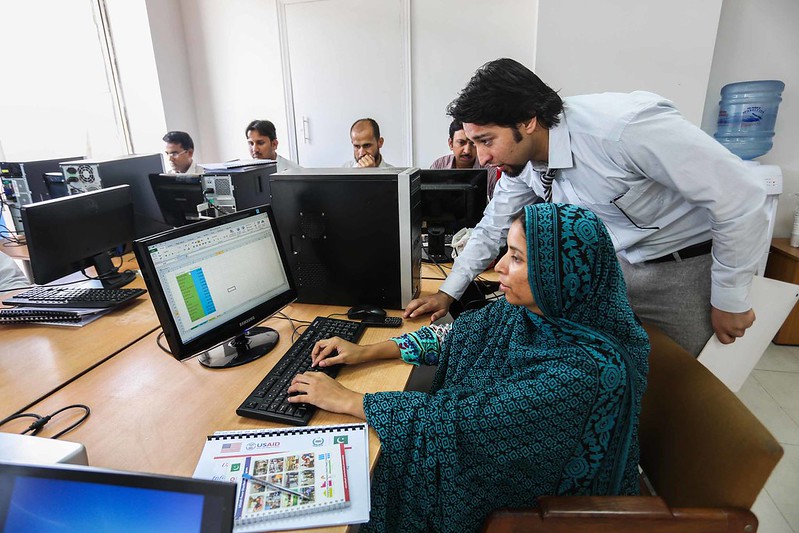On Monday, Grant Shapps, the UK's Minister of State at the Department for International Development, kicked off DFID’s Energy Africa campaign at an event hosted by the Shell Foundation designed to help his team figure out how the UK government can invest its political clout and an initial £30 million ($46 million) to tackle rural energy poverty in Africa.
Energy Africa’s inspiration came from the Minister’s trip to Tanzania. There he saw a range of off-grid small-scale solar panels targeted at poor homes like ones set up by Off Grid Electric, a slick social enterprise delivering basic energy access — enough to power LED lights and a phone charger — to poor homes with rooftop solar panels and pre-paid metering. Minister Shapps wants solar power to be a big part of how we get energy access to “millions” of homes.
As my colleagues Todd Moss and Madeleine Gleave eloquently argue in seven persuasive infographics, we know that small-scale solar might meet a few basic needs but won’t catalyse economic growth. And there’s an inglorious history of private interests capturing our aid budgets to secure subsidies.
Given solar’s limitations and these risks, how can we make sure that Energy Africa fulfils Minister Shapps’s ambitious brief?
Three fast facts
Small-scale, off-grid solar is actually pretty expensive
The numbers for the Off Grid Electric installation that impressed Minister Shapps tell an interesting story.
A day’s access to OGE’s most basic service costs $0.19. This beats the $0.25 a day poor Tanzanian homes spend on kerosene (other sources put this at about $0.16 a day), but if all a household does is run a couple of lights and charge a phone, small-scale solar power is actually more expensive than electricity from Tanzania’s grid . Many communities simply can’t access that grid because of obscenely high connection charges. In some places, then, the catalytic investments are “under the grid”, connecting communities to modern levels of energy access. And off-grid solutions do not scale up — better energy access creates wealth, and wealthier people need better energy access.
Small-scale solar works for small-scale problems
About 600 million Africans are energy poor– a stranglehold on development. Poor homes, for example, rely on biomass (coal, dung, or wood) for cooking. The WHO estimates that exposure to the resulting smoke causes 4.3 million premature deaths a year in developing countries — more than malaria, TB, or HIV/AIDS. Replacing these cooking technologies would be a public health victory, but a simple electric stovetop uses over 500 kWh a year for a household cooking twice a day, which is far out of household solar’s range. Other transformational interventions suffer under the same constraint: for example, 60% of refrigerators used in African health clinics suffer from unreliable electricity connections, breaking the cold chains that keep vaccines safe and effective.
Building a modern economy means building modern levels of energy access
Energy poverty chokes off whole economies because businesses struggle to grow when they can’t get access to reliable, reasonably-priced electricity. According to CGD’s analysis of the World Bank’s enterprise surveys, energy access is amongst the most serious problems facing developing Africa’s private sector, where firms estimate that losses from outages alone eat up 10% of their sales. As Aleem Walji of the World Bank put it: "Today, countries like Uganda are still 90% unserved by electricity. Can you imagine not having power in 90% of any country and still trying to grow the economy?"
A bad idea
With £30 million of funding on the table and an impressive guest list that was heavy on impact investors like Sunfunder and innovators looking to expand access to their products, it’s little surprise that the most popular breakout session during Monday’s event was the one on financing.
Many of the smart ideas in the room came down to directly supporting businesses. For example, DFID could use the money to lend to firms, guarantee their debt, help them manage local currency risks, or invest directly.
Though this makes for a compelling narrative, spending aid money directly on firms is risky. If we try to spend £30 million across a landscape of “innovative” financial instruments, we’ll be left with a mishmash of small-scale equity stakes and various loans or contracts to reduce risks, ultimately giving a vanishingly small leg up to a small coterie of (handpicked) favourites. Worse yet, issuing loans or making investments means picking winners. One of the toughest lessons from the aid industry’s love affair with microcredit has been that handpicking firms for our attention and resources risks creating flabby incumbents that stifle competition — not so much the healthy commercial ecosystem that Minster Shapps envisages as a toxic monoculture.
We can look at the paucity of early-stage financing for solar energy start-ups in frontier markets and believe that either (a) other investors have gotten it wrong, or (b) that the risk-adjusted returns are too low . It’s unlikely that DFID will find deals that investors, including impact funds and philanthropies willing to suffer low returns, have ignored. And it's not surprising that investors and innovators would tell us that it’s a great idea for us to use taxpayers’ money to do exactly that.
One way forward…
Let’s agree that small-scale, off-grid solar is just a small part of the energy poverty puzzle. And let’s agree that it’s a band-aid-not-a-cure that belongs in communities that are the least likely access the grid any time soon. How could we spend £30 million in a way that builds, rather than distorts, this market?
For many rural solar firms, a key problem seems to be access to the working capital to scale up, pay suppliers, or invest in new products. For low-income consumers, the problem is the fixed cost: solar panel prices have tumbled, but the upfront and installation costs of a setup like the one in Tanzania are still too high.
Some firms have responded by opting for a pay-as-you-go business model, installing panels at a loss and recouping their costs (and generating a profit) by selling daily access to the electricity they produce. This effectively turns firms like Off Grid Electric into creditors with sidelines in solar hardware. But though demand is high, it takes operators a long time to turn these tiny cash flows into sizable chunks of retained earnings they can use to, for example, expand into new markets.
What could DFID do? It could use its financial clout to bring this financing forward, capitalising a small fund dedicated to buying packages of a share of future payments from firms supplying customers in specific markets. This gives rural solar providers working capital today in exchange for payments over time. This is hardly original: it’s basically how our mortgages work, and has been used successfully to finance firms like SolarCity in the US.
Set out like this, the small cash flows are a feature, not a bug: even a £10 million fund could buy many more of those receivables, spreading our impact much farther. By only buying a share of the receivables from each firm for given market, DFID doesn’t accept all of the risk, keeping private firms’ shoulders to the wheel to pick good projects in areas with healthy, long term consumer demand — precisely the places the grid is least likely to be viable soon and so where solar solutions are most needed.
Most importantly, the offer could be made open to any solar operator that passes a minimum hurdle for accounting and labour standards, obviating a need to pick winners.
* * *
It’s tempting to think that putting solar panels in the hands of poor consumers will deliver fast gains in welfare and prosperity. In reality, we can’t leapfrog the dull but important longer-term infrastructure investments in better, more reliable, cheaper, and cleaner utility-scale grid connections like those that Power Africa is building out.
Minister Shapps brings impressive momentum and enthusiasm to the Energy Africa campaign. More than once during Monday’s event, attendees like Christine Eibs-Singer who have worked on rural electrification for decades said how exciting it is to get buy-in from someone of his stature. Energy Africa’s ambition should be lauded. The challenge is to harness this momentum, our aid financing, and the Minister’s political insight to scale up rural solar in places that the grid cannot reach without distorting the market or subsidizing inefficient incumbents.
That, or we could leave it to Akon.
Disclaimer
CGD blog posts reflect the views of the authors, drawing on prior research and experience in their areas of expertise. CGD is a nonpartisan, independent organization and does not take institutional positions.





